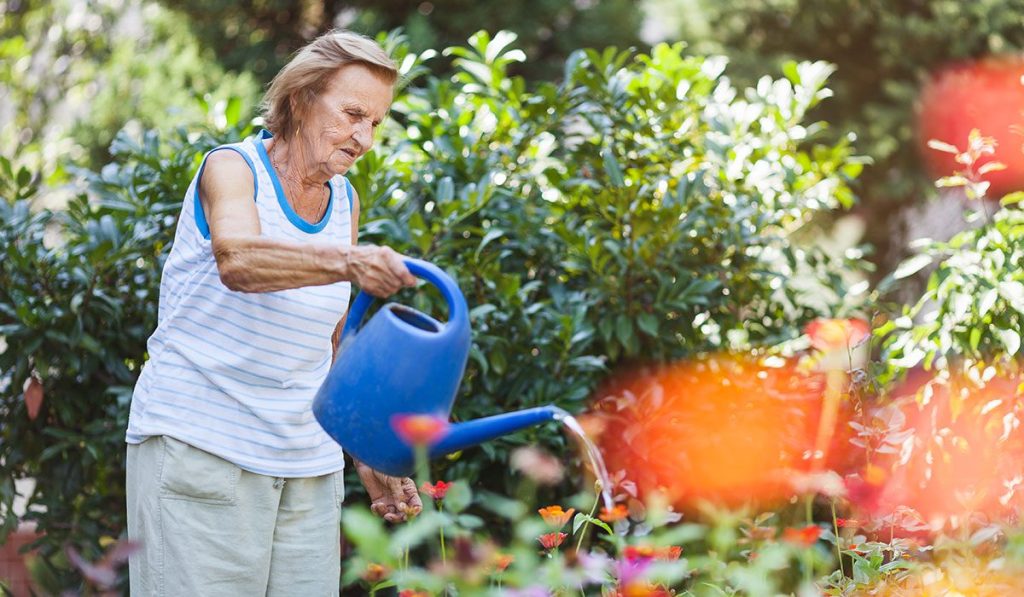As seasons change, so do the health needs of seniors, particularly those receiving home health care. Each season brings its own set of challenges and opportunities for maintaining and improving health. Here’s a comprehensive guide to help seniors stay healthy and safe throughout the year.
Spring Health Tips
1. Allergy Management:
- Identify Triggers: Common allergens include pollen, dust, and mold. Identify specific triggers to avoid.
- Medication: Use prescribed antihistamines and decongestants. Consult with healthcare providers for suitable options.
- Home Environment: Keep windows closed during high pollen days. Use air purifiers and clean filters regularly.
2. Physical Activity:
- Outdoor Exercise: Take advantage of mild weather by engaging in outdoor activities like walking, gardening, or light stretching.
- Hydration: Ensure adequate water intake, especially when active outdoors.
- Appropriate Clothing: Dress in layers to adjust to varying temperatures.
3. Nutrition:
- Seasonal Produce: Incorporate fresh spring vegetables and fruits like asparagus, strawberries, and peas into the diet.
- Balanced Diet: Focus on a diet rich in vitamins and minerals to boost immunity and energy levels.
4. Mental Health:
- Engagement: Participate in social activities and community events to combat isolation.
- Mindfulness: Practice stress-relief techniques like yoga, meditation, or deep-breathing exercises.
Summer Health Tips
1. Heat Management:
- Hydration: Drink plenty of water and avoid caffeine and alcohol which can cause dehydration.
- Cool Environment: Stay indoors during peak heat hours (10 AM to 4 PM). Use fans or air conditioning to stay cool.
- Light Clothing: Wear loose, light-colored clothing to reflect heat and keep cool.
2. Skin Protection:
- Sunscreen: Apply broad-spectrum sunscreen with at least SPF 30. Reapply every two hours when outdoors.
- Protective Clothing: Wear hats, sunglasses, and long sleeves to shield skin from the sun.
3. Nutrition:
- Hydrating Foods: Eat water-rich foods like cucumbers, watermelon, and oranges to help maintain hydration.
- Small Meals: Eat smaller, more frequent meals to avoid feeling sluggish in the heat.
4. Physical Activity:
- Morning/Evening Exercise: Engage in physical activities during cooler parts of the day.
- Swimming: Consider swimming as a low-impact, cooling exercise option.
Fall Health Tips
1. Immunizations:
- Flu Vaccine: Ensure annual flu shots are up to date to protect against seasonal influenza.
- Other Vaccines: Consider vaccines for pneumonia and shingles if recommended by a healthcare provider.
2. Fall Prevention:
- Home Safety: Ensure home is well-lit and free of tripping hazards like loose rugs and clutter.
- Footwear: Wear sturdy, non-slip shoes to prevent falls.
3. Nutrition:
- Seasonal Foods: Incorporate fall produce like apples, pumpkins, and sweet potatoes, which are rich in nutrients.
- Warm Meals: Enjoy soups and stews that provide warmth and comfort.
4. Mental Health:
- Routine Check-Ins: Maintain regular contact with family and friends to support emotional well-being.
- Outdoor Activities: Enjoy the crisp fall weather with walks and other outdoor activities.
Winter Health Tips
1. Cold Management:
- Warm Clothing: Dress in layers, including hats, gloves, and scarves, to retain body heat.
- Home Heating: Ensure the home is adequately heated. Use humidifiers to maintain moisture in the air.
2. Immune Support:
- Vitamin D: With less sunlight exposure, consider vitamin D supplements after consulting a healthcare provider.
- Healthy Diet: Focus on nutrient-rich foods to support the immune system.
3. Safety:
- Fall Prevention: Be cautious of ice and snow. Use salt or sand on walkways and wear shoes with good traction.
- Emergency Preparedness: Keep emergency supplies handy, including flashlights, blankets, and extra medication.
4. Mental Health:
- Combating Isolation: Engage in indoor hobbies and social activities to prevent winter blues.
- Light Therapy: Consider light therapy lamps to combat seasonal affective disorder (SAD).
General Tips for Year-Round Health
1. Regular Medical Checkups:
- Schedule routine checkups to monitor chronic conditions and address new health concerns promptly.
2. Medication Management:
- Use pill organizers and set reminders to ensure medications are taken as prescribed.
3. Hydration:
- Maintain adequate hydration throughout the year, adjusting intake according to seasonal needs.
4. Physical Activity:
- Engage in regular physical activity suitable for individual health conditions and fitness levels.
5. Social Engagement:
- Stay connected with family, friends, and community to support emotional and mental health.
6. Healthy Diet:
- Follow a balanced diet rich in fruits, vegetables, lean proteins, and whole grains.
By following these seasonal health tips, seniors in home health care can enjoy a healthier, safer, and more comfortable life throughout the year. Tailoring care to the unique demands of each season ensures that seniors remain active, engaged, and well-protected against seasonal challenges.





